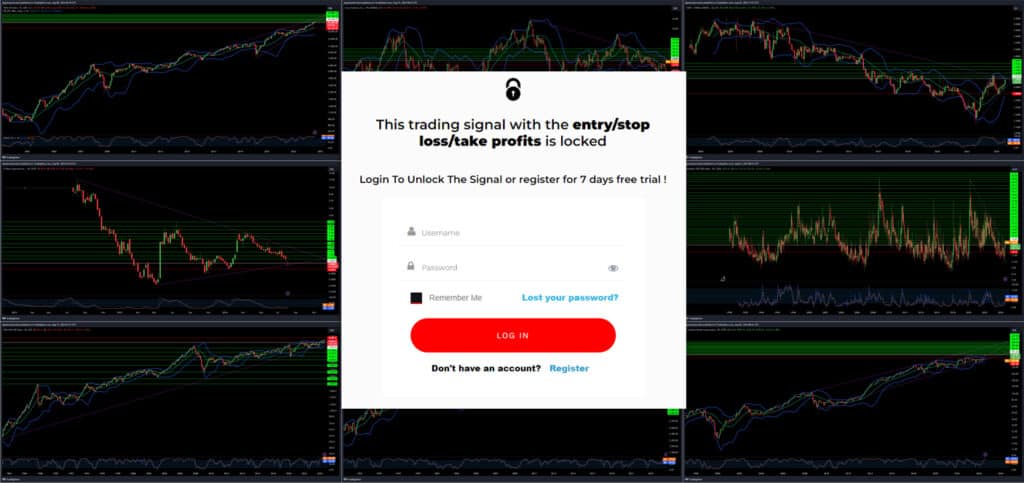As a novice in the world of forex trading, understanding the dynamics of the market can be overwhelming. One of the key aspects to comprehend is the concept of forex market volatility. Volatility refers to the rapid and significant changes in currency prices, which can present both opportunities and challenges for traders.
The forex market is known for its dynamic nature, characterized by constant fluctuations in currency values. This volatility is influenced by various factors, including economic indicators, geopolitical events, and market sentiment. Navigating through this ever-changing landscape requires a beginner’s insight and a strategic approach.
To effectively navigate forex market volatility, it is crucial to gain a thorough understanding of the market’s inner workings. Learning about the different types of markets within forex trading, such as the spot market, forwards market, futures market, and options market, can provide valuable insights into the various tools and strategies available for trading.
Furthermore, developing a strong foundation in risk management is essential. Implementing risk mitigation techniques, such as setting stop-loss orders and diversifying trading pairs, can help minimize potential losses in volatile market conditions. Having a clear trading strategy in place, supported by thorough research and analysis, can also mitigate risks and enhance trading performance.
Emotional discipline is another crucial aspect for navigating forex market volatility. Maintaining composure and sticking to the predetermined trading strategy, even in the face of rapid price fluctuations, is vital for long-term success. Additionally, continuously learning and adapting to changing market conditions is essential to stay ahead and capitalize on the opportunities presented by volatile markets.
While forex market volatility may pose challenges for beginners, it also offers significant profit opportunities. By leveraging knowledge, employing effective risk management strategies, and staying dedicated to continuous learning, beginners can navigate the dynamic nature of the forex market and seize potential gains.
What is the Forex Market?
The forex market, also known as the foreign exchange market, is a global marketplace where currencies are traded. It is a decentralized market that operates electronically over the counter, without a physical exchange or central marketplace. Instead, trading takes place through computer networks among traders worldwide. The forex market is open 24 hours a day and is active in major financial centers across different time zones, making it accessible to traders around the clock.
Currencies in the forex market are traded in pairs, such as EUR/USD or GBP/JPY. When trading a currency pair, one currency is exchanged for another based on their relative values. The forex market offers a variety of currency pairs to trade, providing opportunities for traders to speculate on the fluctuations in exchange rates.
The forex market encompasses both the spot (cash) market and derivatives markets. In the spot market, currencies are bought and sold for immediate delivery. Derivatives markets include forwards, futures, options, and currency swaps, which allow traders to trade contracts based on future exchange rates and hedge against currency risks.
Overall, the forex market plays a crucial role in facilitating international trade and investment by enabling individuals, businesses, and financial institutions to exchange currencies and manage their foreign exchange exposure.
Table: Forex Trading Currency Pairs
| Major Currency Pairs | Minor Currency Pairs | Exotic Currency Pairs |
|---|---|---|
| EUR/USD | EUR/GBP | USD/TRY |
| USD/JPY | GBP/JPY | EUR/PLN |
| GBP/USD | AUD/NZD | USD/MXN |
Table: Forex Trading Currency Pairs
By understanding the nature of the forex market and the dynamics of currency pairs, traders can make informed decisions and capitalize on the opportunities presented in this global marketplace.
“The forex market is the largest financial market in the world, with a daily trading volume of $7.5 trillion in 2022.”
How Does the Forex Market Work?
The forex market is the backbone of global currency trading. Unlike other financial markets, the forex market operates 24 hours a day, five and a half days a week, making it the only truly continuous and nonstop trading market. Historically, the forex market was dominated by institutional firms and large banks. However, in recent years, it has become increasingly retail-oriented, attracting traders and investors of all sizes.
The forex market functions through a vast network of connected trading terminals and computer networks. Market participants include institutions, investment banks, commercial banks, and retail investors from around the world. These participants buy and sell currencies based on their trading price, which is determined by the principles of supply and demand. The constantly changing exchange rates provide trading opportunities for participants.
The forex market is influenced by various factors, including interest rates, economic performance, geopolitical sentiment, and price speculation. Changes in these factors can cause currencies to fluctuate in value, creating opportunities for traders to profit. It is important for traders to stay informed about global economic events and trends that impact the forex market.
Here is a table outlining the key features of the forex market:
| Key Features | Description |
|---|---|
| Continuous Trading | The forex market operates 24 hours a day, five and a half days a week, allowing traders to participate at any time. |
| Retail-Oriented | The forex market is no longer limited to institutional firms and large banks. It has become more retail-oriented, accessible to traders and investors of all sizes. |
| Supply and Demand | Currency prices in the forex market are determined by supply and demand dynamics. Changes in demand or supply can affect exchange rates. |
| Influencing Factors | Interest rates, economic performance, geopolitical sentiment, and price speculation are among the key factors that influence the forex market. |
Understanding how the forex market operates is essential for traders looking to navigate its complexities and seize profitable opportunities.
Quote:
“The forex market is a dynamic and constantly evolving marketplace that offers diverse opportunities for individuals to participate in global currency trading.” – John Smith, Forex Trader
Types of Markets in Forex Trading
Forex trading encompasses various types of markets, each offering unique opportunities for traders. These markets include the spot market, forwards market, futures market, and options market.
The Spot Market: The spot market is the largest and most liquid market in forex trading. It involves the immediate buying and selling of currencies at the current market price. Traders in the spot market aim to capitalize on short-term price fluctuations and take advantage of currency value disparities. This market is characterized by its high trading volume and fast-paced nature.
The Forwards Market: In the forwards market, traders engage in private agreements to buy or sell currencies at predetermined prices on a future date. These agreements, known as forward contracts, are customized and traded over the counter (OTC). Participants in the forwards market use these contracts to hedge against risks or speculate on future currency price movements.
The Futures Market: The futures market involves standardized contracts for the purchase or sale of currencies at a predetermined price and future date. These contracts are traded on exchanges, providing transparency and liquidity. Traders in the futures market can profit from anticipated currency price movements and use futures contracts for hedging purposes.
The Options Market: The options market offers traders the right, but not the obligation, to buy or sell currencies at a predetermined price on a future date. Options contracts provide flexibility and allow traders to protect themselves from adverse currency movements. Traders can use options for speculation, hedging, or creating sophisticated trading strategies.
Each of these markets offers various tools and instruments for hedging, risk management, and speculative trading. Traders can choose the market that aligns with their trading goals and strategies, allowing them to navigate the dynamic nature of the forex market effectively.
Using the Forex Markets for Profit
Forex trading offers excellent opportunities for generating profits through strategic trading approaches. Traders can capitalize on the interest rate differential between two currencies and leverage exchange rate changes to enhance their profitability. Let’s explore these profit-generation strategies in detail.
Profiting from Interest Rate Differential
One way to generate profits in the forex market is by taking advantage of the interest rate differential between two currencies. Traders can buy the currency with a higher interest rate and simultaneously short the currency with a lower interest rate. By doing so, they can exploit the difference in interest rates, earning profits based on the interest rate spread.
Profiting from Exchange Rate Changes
Another avenue for profit in the forex market is by anticipating or reacting to changes in exchange rates. Traders can closely monitor economic factors, geopolitical events, and market sentiment to identify potential currency movements. By understanding these catalysts, traders can make informed decisions to buy or sell currencies, aiming to profit from favorable exchange rate fluctuations.
Forex trading provides numerous profit opportunities in both rising and falling markets. Traders can engage in short-term or long-term speculation, depending on their trading preferences and risk appetite. With diligent analysis and strategic execution, forex traders can navigate the dynamic nature of the market and open doors to potentially lucrative profit-making possibilities.
In the next section, we will delve into the process of getting started with forex trading, including the essential steps and considerations. Stay tuned!
How to Start Trading Forex
When it comes to trading forex, getting started requires a combination of learning and preparation. This section will guide you through the essential steps to embark on your forex trading journey.
First and foremost, it is crucial to invest time in learning about the forex market and gaining a solid understanding of its dynamics. Familiarize yourself with the terminology, trading platforms, and risk management techniques. This knowledge will serve as a foundation for your forex trading endeavors.
One of the key steps to accessing the forex market is setting up a brokerage account. Take the time to research and choose a reputable broker that offers competitive pricing, reliable trading platforms, and excellent customer support. A reliable broker will provide you with the tools and resources needed to execute trades effectively.
Developing a trading strategy is a fundamental aspect of success in forex trading. Start by setting broad guidelines for your trades, define your risk tolerance levels, and formulate a plan for your approach to trading. Having a well-defined strategy will help you make informed decisions and navigate the forex market with more confidence.
Remember to continuously monitor your positions, staying vigilant and adaptable to market conditions. Maintaining emotional discipline is essential in forex trading, as it can be a highly volatile and dynamic market. Stick to your trading strategy and avoid making impulsive decisions based on emotional reactions.
Lastly, never stop learning. Forex trading is an ongoing learning process, and staying informed about market developments, trends, and new strategies is crucial to your long-term success. Continuously educate yourself, adapt to changing market conditions, and seek new opportunities to refine your trading skills.
By following these steps and committing to continuous learning, you can embark on your forex trading journey with confidence. Remember that success in forex trading comes with experience, discipline, and a strong understanding of the market.
Strategies for Navigating Forex Market Volatility
Navigating forex market volatility requires a combination of effective risk management, leveraging economic indicators, employing technical analysis, and maintaining emotional discipline. These strategies are essential for traders to adapt to the dynamic nature of the forex market and capitalize on profit opportunities.
Risk Management
Implementing risk management practices is crucial in volatile markets to protect capital and minimize potential losses. Traders should consider:
- Setting stop-loss orders to automatically close positions at predetermined levels
- Diversifying trading pairs to spread risks across different currencies
- Avoiding over-leveraging and managing leverage ratios responsibly
- Adjusting risk tolerance based on market conditions and volatility levels
Leveraging Economic Indicators
Economic indicators provide valuable insights into market movements and help traders anticipate shifts in currency values. By closely monitoring economic indicators such as GDP growth, inflation rates, employment data, and central bank announcements, traders can make informed trading decisions.
Employing Technical Analysis
Technical analysis involves analyzing historical price data, chart patterns, support and resistance levels, and technical indicators to identify potential entry and exit points. By studying these factors, traders can gain a deeper understanding of market trends and make more accurate predictions for future price movements.
Maintaining Emotional Discipline
Emotional discipline is crucial in volatile markets to avoid impulsive decisions driven by fear or greed. Traders should stick to their trading strategies, follow established rules, and avoid making rash decisions based on emotional impulses. This discipline allows traders to stay focused on their long-term goals and avoid unnecessary losses.
Continuous learning and adaptation are key in navigating forex market volatility. Traders should stay updated on market news, trends, and evolving market dynamics. By staying informed, traders can effectively adjust their strategies and capitalize on changing market conditions.
| Strategies | Description |
|---|---|
| Risk Management | Setting stop-loss orders, diversifying trading pairs, avoiding over-leveraging, and adjusting risk tolerance based on market conditions |
| Leveraging Economic Indicators | Monitoring economic indicators such as GDP growth, inflation rates, employment data, and central bank announcements to make informed trading decisions |
| Employing Technical Analysis | Analyzing historical price data, chart patterns, support and resistance levels, and technical indicators to identify potential entry and exit points |
| Maintaining Emotional Discipline | Sticking to trading strategies, avoiding impulsive decisions, and following established rules to avoid unnecessary losses |
Conclusion
Navigating the forex market volatility can be both challenging and rewarding. The forex market is known for its dynamic nature, constantly presenting traders with opportunities and challenges. In order to thrive in such an environment, it is crucial to have a comprehensive understanding of the market and employ effective strategies.
One key strategy is implementing risk management techniques to protect against potential losses. This includes setting stop-loss orders, diversifying trading pairs, and avoiding excessive leverage. By managing risk effectively, traders can minimize the impact of market fluctuations and preserve capital.
Additionally, leveraging economic indicators and technical analysis can provide valuable insights into market trends and potential opportunities. By staying informed of economic news and analyzing price charts, traders can make informed decisions and identify favorable entry and exit points.
However, it’s not just about the numbers and charts. Emotional discipline plays a vital role in successful forex trading. Emotions such as fear and greed can lead to impulsive decisions that may result in losses. By maintaining emotional discipline and sticking to a well-defined trading strategy, traders can navigate volatile market conditions with confidence.
Ultimately, success in the forex market requires a continuous learning mindset. The market is ever-evolving, and traders must adapt to changing trends, strategies, and technologies. By staying up to date with industry developments and continuously honing their skills, traders can seize the opportunities presented by forex market volatility and achieve long-term profitability.
FAQ
What is forex market volatility?
Forex market volatility refers to the degree of price fluctuations and unpredictability in the forex market. It is a measure of how quickly and significantly currency exchange rates can change.
How does forex market volatility affect trading?
Forex market volatility can impact trading by increasing the potential for both profits and losses. Higher volatility can offer more trading opportunities but also carries higher risks.
How can I navigate forex market volatility?
To navigate forex market volatility, it is important to have a solid understanding of the market, practice effective risk management, utilize economic indicators and technical analysis, and maintain emotional discipline.
What risk management strategies should I use in volatile markets?
Risk management strategies for volatile markets include setting stop-loss orders, diversifying trading pairs, avoiding over-leveraging, and adjusting risk tolerance based on market conditions.
How can economic indicators help in navigating volatile markets?
Economic indicators provide insights into market movements and can help traders anticipate shifts in currency values. They offer valuable information on economic performance, interest rates, employment data, and other factors that influence forex market volatility.
How does technical analysis assist in volatile markets?
Technical analysis involves studying chart patterns, support and resistance levels, and technical indicators to identify potential entry and exit points. It helps traders make informed decisions and navigate volatile market conditions.
Why is emotional discipline important in volatile markets?
Emotional discipline is crucial in volatile markets to avoid impulsive decisions driven by fear or greed. It helps traders stick to their trading strategies and make rational decisions based on analysis and risk management principles.
What is the best approach to trading forex?
The best approach to trading forex involves continuous learning, adapting to market conditions, developing a trading strategy, setting broad guidelines, defining risk tolerance, and staying disciplined and patient.
How can I set up a brokerage account for forex trading?
To set up a brokerage account for forex trading, research and choose a reputable broker that offers competitive pricing, reliable trading platforms, and good customer support. Follow their account opening process, which typically involves providing identification documents and funding the account.
What factors should I consider when choosing a forex broker?
When choosing a forex broker, consider factors such as regulation and licensing, reputation, trading platforms offered, available trading instruments, customer support, pricing and fees, and educational resources.
Source Links
- https://www.investopedia.com/articles/forex/11/why-trade-forex.asp
- https://tradedork.medium.com/news-events-and-breakout-trading-navigating-forex-market-volatility-f374b845da41
- https://www.logikfx.com/post/navigating-market-volatility-strategies-for-forex-traders-in-uncertain-times
Disclaimer
All information on this website is of a general nature. The information is not adapted to conditions that are specific to your person or entity. The information provided can not be considered as personal, professional or legal advice or investment advice to the user.
This website and all information is intended for educational purposes only and does not give financial advice. Signal Mastermind Signals is not a service to provide legal and financial advice; any information provided here is only the personal opinion of the author (not advice or financial advice in any sense, and in the sense of any act, ordinance or law of any country) and must not be used for financial activities. Signal Mastermind Signals does not offer, operate or provide financial, brokerage, commercial or investment services and is not a financial advisor. Rather, Signal Mastermind Signals is an educational site and a platform for exchanging Forex information. Whenever information is disclosed, whether express or implied, about profit or revenue, it is not a guarantee. No method or trading system ensures that it will generate a profit, so always remember that trade can lead to a loss. Trading responsibility, whether resulting in profits or losses, is yours and you must agree not to hold Signal Mastermind Signals or other information providers that are responsible in any way whatsoever. The use of the system means that the user accepts Disclaimer and Terms of Use.
Signal Mastermind Signals is not represented as a registered investment consultant or brokerage dealer nor offers to buy or sell any of the financial instruments mentioned in the service offered.
While Signal Mastermind Signals believes that the content provided is accurate, there are no explicit or implied warranties of accuracy. The information provided is believed to be reliable; Signal Mastermind Signals does not guarantee the accuracy or completeness of the information provided. Third parties refer to Signal Mastermind Signals to provide technology and information if a third party fails, and then there is a risk that the information may be delayed or not delivered at all.
All information and comments contained on this website, including but not limited to, opinions, analyzes, news, prices, research, and general, do not constitute investment advice or an invitation to buy or sell any type of instrument. Signal Mastermind Signals assumes no responsibility for any loss or damage that may result, directly or indirectly, from the use or dependence on such information.
All information contained on this web site is a personal opinion or belief of the author. None of these data is a recommendation or financial advice in any sense, also within the meaning of any commercial act or law. Writers, publishers and affiliates of Signal Mastermind Signals are not responsible for your trading in any way.
The information and opinions contained in the site are provided for information only and for educational reasons, should never be considered as direct or indirect advice to open a trading account and / or invest money in Forex trading with any Forex company . Signal Mastermind Signals assumes no responsibility for any decisions taken by the user to create a merchant account with any of the brokers listed on this website. Anyone who decides to set up a trading account or use the services, free of charge or paid, to any of the Broker companies mentioned on this website, bears full responsibility for their actions.
Any institution that offers a service and is listed on this website, including forex brokers, financial companies and other institutions, is present only for informational purposes. All ratings, ratings, banners, reviews, or other information found for any of the above-mentioned institutions are provided in a strictly objective manner and according to the best possible reflection of the materials on the official website of the company.
Forex/CFD trading is potentially high risk and may not be suitable for all investors. The high level of leverage can work both for and against traders. Before each Forex/CFD investment, you should carefully consider your goals, past experience and risk level. The opinions and data contained on this site should not be considered as suggestions or advice for the sale or purchase of currency or other instruments. Past results do not show or guarantee future results.
Neither Signal Mastermind Signals nor its affiliates ensure the accuracy of the content provided on this Site. You explicitly agree that viewing, visiting or using this website is at your own risk.




